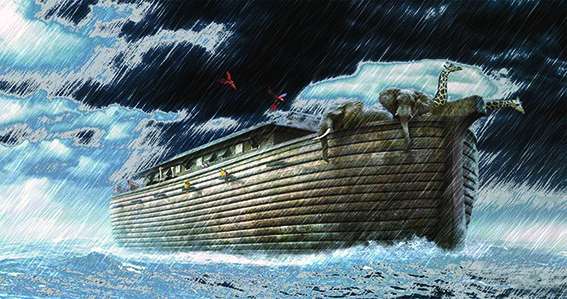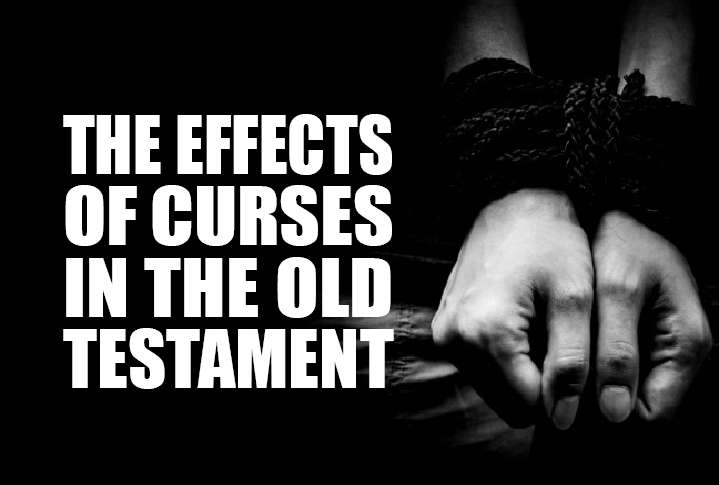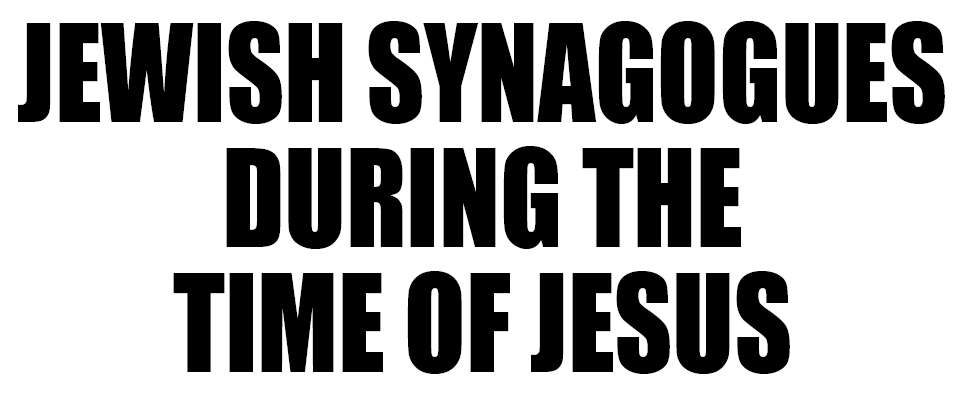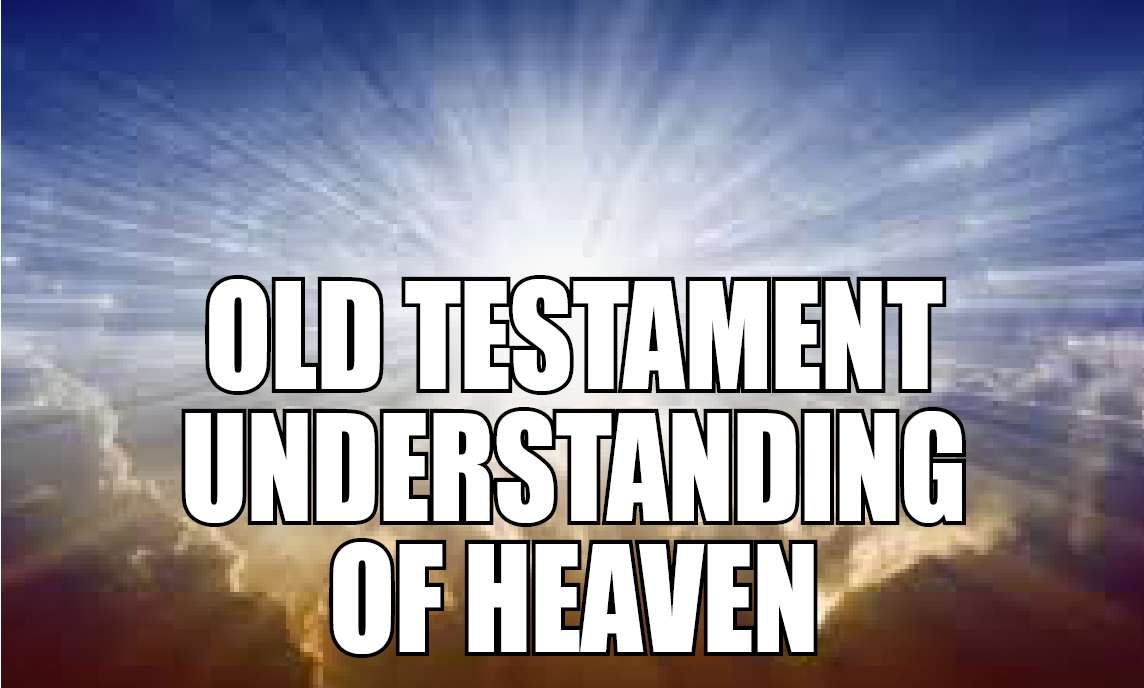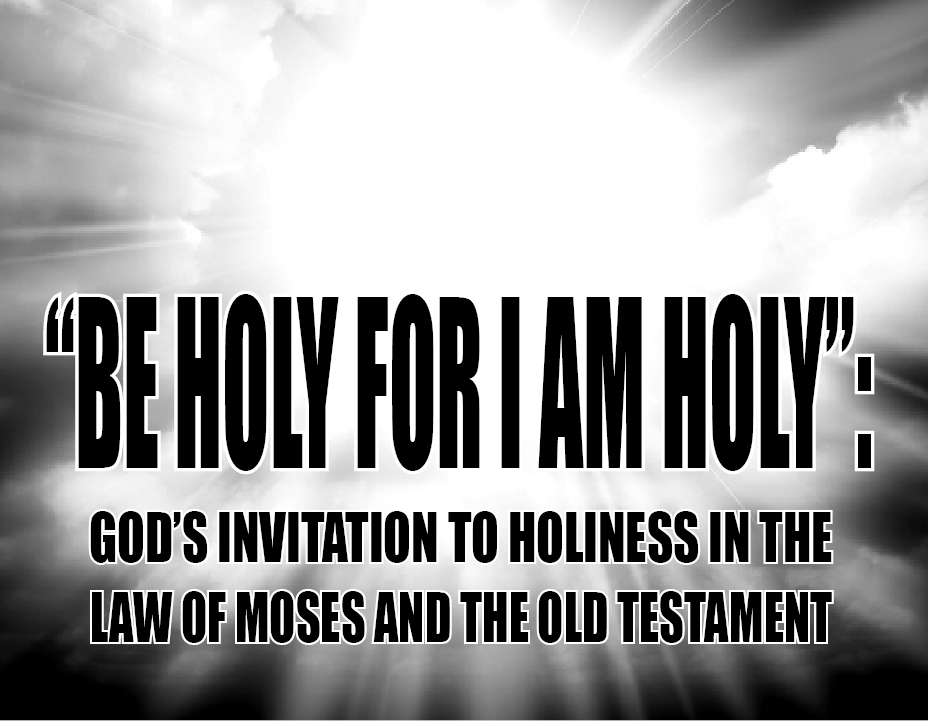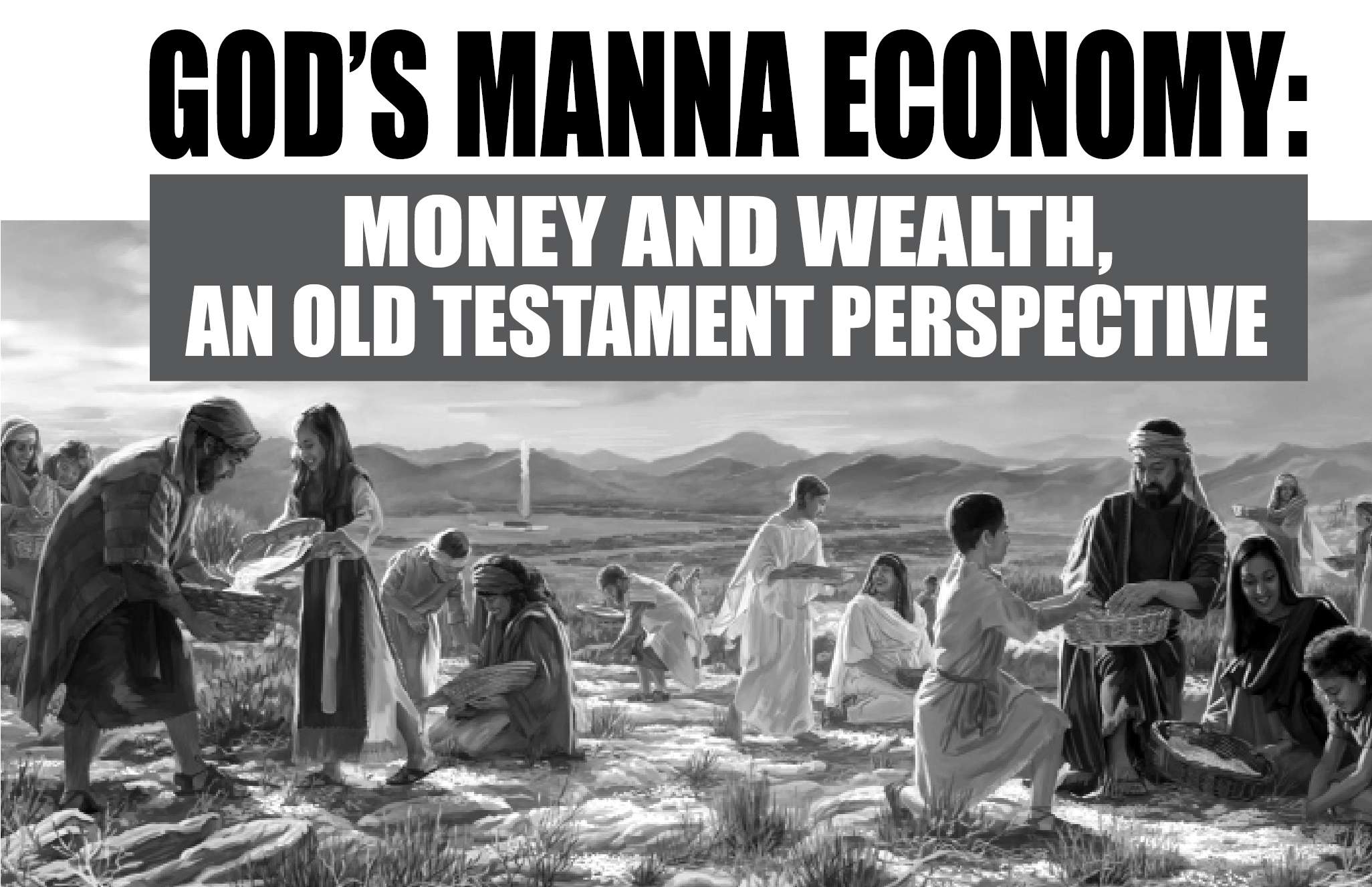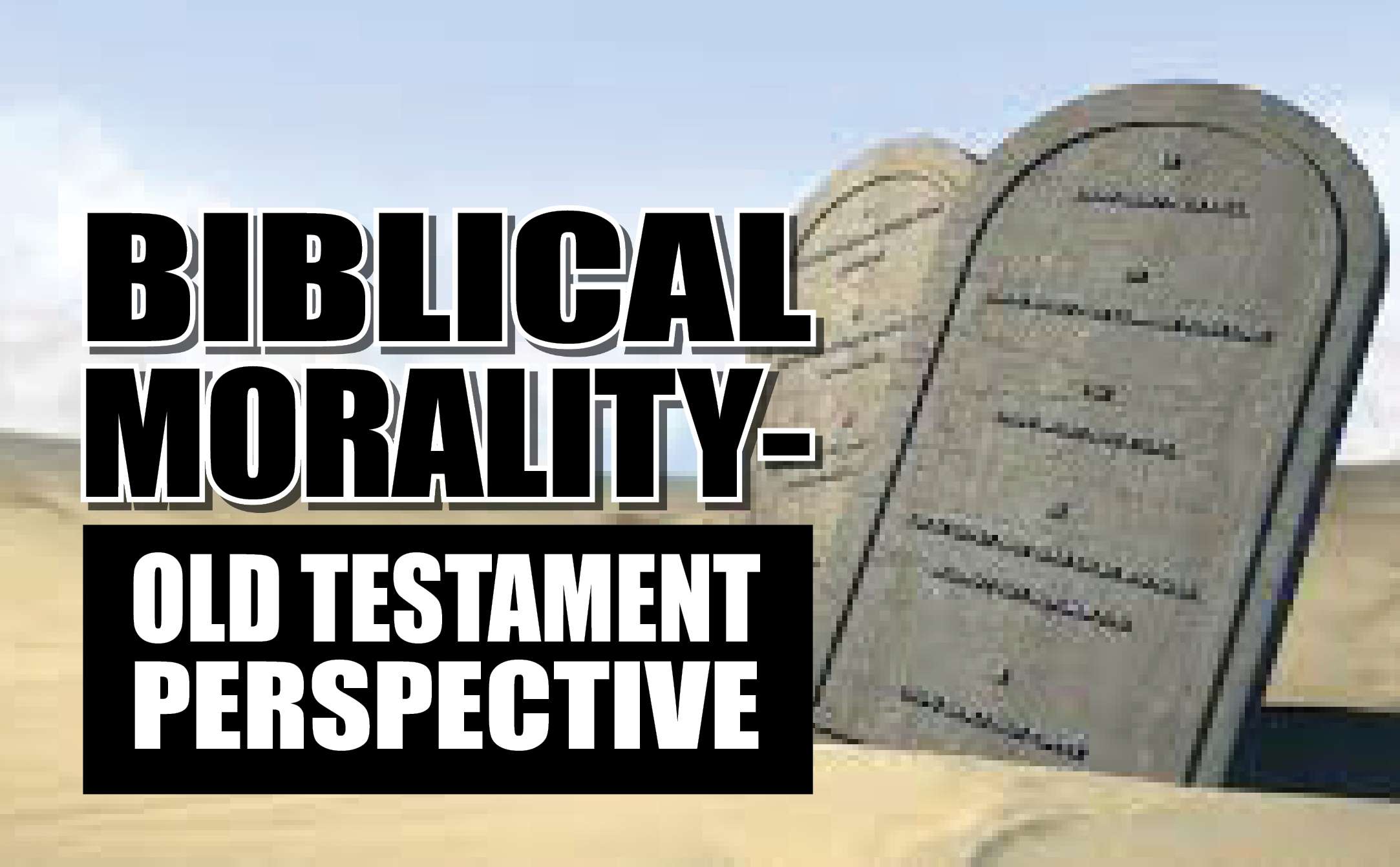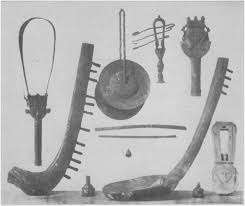

History of Worship and Music in the Old Testament
Pr. Jison Saju Joseph
The Beginnings of Worship, Music and Singing in Israelite History
Sacrifices were an integral part of the worship of God from the time of Cain and Abel. We see Abraham and others who continued that part of worship to God. Instrumental music in the Bible starts off with Jubal in Gen. 4:21 who is described as the father of all those who play harp and flute: “His brother’s name was Jubal. He was the father of all those who play the harp and flute. “The first mention of music after the narrative of Jubal is where Laban asks Jacob in Gen. 31:27: “Why did you flee away secretly, and steal away from me, and not tell me; for I might have sent you away with joy and songs, with timbrel and harp?”
In the book of Exodus, after the people escaped from Egypt and crossed the Red Sea, Moses and the people sang a victory song. Ex.15:1-18 “Then Moses and the children of Israel sang this song to the Lord……forever and ever. “Miriam, the sister of Moses and a prophetess celebrated this event with the women of the camp. Ex:15:20-21: “Then Miriam, the prophetess, the sister of Aaron, took the timbrel in her hand ….. The horse and its rider, He has thrown into the sea.”
At Beer, Israelites sang this song: “Then Israel sang this song: Spring up, O well! ...with their staves.” (Numbers 21:16-18). Moses gave instructions, warnings and blessings to Israel before he died. Some of these were in the form of songs (Deut. 31:30ff). In the days of Samuel, we see prophetic schools and their singing and praising of God. During the time of David and Solomon, at the height of temple worship, we see choirs, horns (shofar), blowers, cymbal bangers, tambourines and other percussionists and some stringed instruments, being part of the temple worship.
The study of ancient musical instruments have led researchers to study instruments from Israel which date to the OT biblical period. Archaeological as well as written data have demonstrated clearly that music was an integral part of the daily life in ancient Israel.
Figurines and iconographic depictions show that people played chordophones and frame drums, and the human voice was essential as women and men sang love songs along with laments for the deceased. Data also describes outdoor scenes of music and dancing in sometimes prophetic frenzies, often with carefully orchestrated and choreographed musicians and singers within specially built structures.
According to ancient music historian Theodore Burgh, “If we were able to step into the . . . biblical period, we would find a culture filled with music . . . where people used music in their daily lives.” Such music was capable of expressing a great variety of moods and feelings or the broadly marked antitheses of joy and sorrow, hope and fear, faith and doubt. In fact, every shade and quality of sentiment are found in the wealth of songs and psalms and in the diverse melodies of the people.
Worship and Music in Pre-Exilic and Post Exilic Israel
According to music historian Abraham Schwadron, “probably the most important musical contribution of the ancient Hebrews was the elevation of the status of liturgical music in union with ritual ceremonies.” Despite the similar instruments used by the Hebrews which were also used in neighbouring cultures, including Phoenicia, Egypt, Assyria, and Greece, Schwadron writes that “it would be accurate to state that . . . it is in the particular uses of music—sacred and secular, ethical and aesthetical—that ancient Jewish music made a unique contribution.” 1 Chronicles 25:1–31 lists and organizes the skilled musicians who were to perform, or “prophecy”, with cymbals, stringed instruments, and harps in the service of the Temple. Although the ancient music of the Psalms and the other Bible books (which were all chanted), is often thought to be lost, the Masoretic text of the Hebrew Bible contains cantillation marks indicating a melodic line for the words.
The musical traditions of the Temple were broken by the destruction of the First Temple and the exile of the Jews in Babylon during the 6th century BC. Most of the psalms seem to have been written in the years after the return of the Jews to Jerusalem. At this time too the practice of antiphonal singing between the cantor and the congregation seems to have become common. The music of ancient Israel represents almost fourteen centuries of change, roughly from 1300 BC to 70 AD, when Titus’ siege of Jerusalem took place. Stainer points out the lack of many artifacts during this period. He concludes that the “sad lack of national monuments relating to the Jews is not surprising, when it is remembered that Jerusalem stood about seventeen sieges, each of which was accompanied by more or less destruction, and that, too, at the hands of victors who seemed to take a malicious delight in effacing the national characteristics of those they conquered.”
However, after the fall of the First Temple, music historian Werner states that Judean music included reminiscences, visions, and fantasies, as the Rabbis took pains to eradicate both its choral and instrumental traditions. “Their time had arrived, and their ideas on liturgy and music were radically different from those of the Temple priests.” The destruction of the Second Temple in 70 AD led to the collapse of the Hebrew nation and the beginning of the Diaspora (dispersion or exile) of Jews to other lands. In these places, the synagogue would replace the destroyed Temple, with new liturgical services, prayers, and rabbinical writings oriented to mourning the loss of both the Temple and personal freedom.
Elements of Music and Singing
Cantillation: Used when parts of the Bible were read during the service and parts of the text were sung or chanted.
Antiphony (also referred to as responsorial singing): Since Hebrew poetry is based on parallelism (the expression of one thought in two different ways), several types of performances were possible: either by two separate alternating choruses, or by a soloist alternating with the chorus. At its peak around the beginning of the Christian era, antiphonal music was performed by a large choir of highly trained men singers, with boys sometimes added. According to Hindley, “Antiphony is among the debts owed by Christian music to its Jewish predecessor.”
Hymn songs: Within the service they were performed by either a soloist, called the cantor, or by groups. Some of the hymns were freely organized with groups of melodic motives with their variants connected to create a continuous melodic chant.
Orchestration: Werner writes that “the sound of the Temple's orchestra consisted of never less than twelve instruments and rarely exceeded thirty-six.” The trumpets were never mixed with the rest of the orchestra—being used for signals exclusively. One pair of cymbals were used in Temple rituals also as a signal instrument, “not unlike the gong in the modern theatre.”
Psalms in Israelite Worship
The Psalms were written not merely as poems, but as songs for singing. According to Bible exegete Saadia Gaon who served in the geonate of Babylonian Jewry, the Psalms were originally sung in the Temple precincts by the Levites, based on what was prescribed for each psalm (lineage of the singers, designated time and place, instruments used, manner of execution, etc.), but are permitted to be randomly read by anyone at any time and in any place. More than a third of the psalms are addressed to the Director of Music. Some psalms exhort the worshipper to sing (e.g. Psa. 33:1-3; 92:1-3; 96:1-3; 98:1; 101:1; 150). Some headings denote the musical instruments on which the psalm should be played (Psa. 4, 5, 6, 8, 67). Some refer to the Levites who sang one of eight melodies, one of which was known simply as "the eighth" (Hebrew: sheminit) (Psa. 6, 12). And others preserve the name for ancient eastern modes, like ayelet ha-shachar (hind of the dawn; Psa. 22); shoshanim / shushan (lilies / lily; Psa. 45; 60), said to be describing a certain melody; or 'almuth / 'alamoth (mute; Psa. 9, 46), which, according to Saadia Gaon, is "a silent melody, nearly inaudible."
Despite the frequently heard view that their ancient music is lost, the means to reconstruct it are still extant. Fragments of temple psalmody are preserved in ancient church and synagogue chant, particularly in the tonus peregrinus melody to Psalm 114. Cantillation signs, to record the melody sung, were in use since ancient times; evidence of them can be found in the manuscripts of the oldest extant copies of Psalms in the Dead Sea Scrolls and are even more extensive in the Masoretic text, which dates to the Early Middle Ages and whose Tiberian scribes claimed to base their work on temple-period signs.
Important Theological Themes in the Book of Psalms
The Psalter is for the most part a book of prayer and praise. In it faith speaks to God in prayer and of God in praise. But there are also psalms that are explicitly didactic (instructional) in form and purpose (teaching the way of godliness). The manner in which the whole collection has been arranged suggests that one of its main purposes was instruction in the life of faith, a faith formed and nurtured by the Law, the Prophets and the canonical wisdom literature. Accordingly, the Psalter is theologically rich. Its theology is, however, not abstract or systematic but doxological, confessional and practical.
1. At the core of the theology of the Psalter is the conviction that the gravitational center of life (of right human understanding, trust, hope, service, morality, adoration), but also of history and of the whole creation (heaven and earth), is God (Yahweh, "the Lord"; see Dt 6:4). He is the Great King over all, the One to whom all things are subject. He created all things and preserves them; they are the robe of glory with which he has clothed himself. Because he ordered them, they have a well-defined and "true" identity. Because he maintains them, they are sustained and kept secure from disruption, confusion or annihilation. Because he alone is the sovereign God, they are governed by one hand and held in the service of one divine purpose. Under God creation is a cosmos -- an orderly and systematic whole. What we distinguish as "nature" and history had for the psalmists one Lord, under whose rule all things worked together. Through the creation the Great King's majestic glory is displayed. He is good (wise, righteous, faithful, amazingly benevolent and merciful -- evoking trust), and he is great (his knowledge, thoughts and works are beyond human comprehension -- evoking reverent awe). By his good and lordly rule he is shown to be the Holy One.
2. God ultimately will not tolerate any worldly power that opposes or denies or ignores him. He will come to rule the nations so that all will be compelled to acknowledge him. This expectation is no doubt the root and broadest scope of the psalmists' long view of the future. Because the Lord is the Great King beyond all challenge, his righteous and peaceable kingdom will come, overwhelming all opposition and purging the creation of all rebellion against his rule -- such will be the ultimate outcome of history.
3. The Lord opposes the "proud," those who rely on their own resources (and/or the gods they have contrived) to work out their own destiny. These are the ones who ruthlessly wield whatever power they possess to attain worldly wealth, status and security; who are a law to themselves and exploit others as they will. In the Psalter, this kind of "pride" is the root of all evil. Those who embrace it, though they may seem to prosper, will be brought down to death, their final end. The "humble," the "poor and needy," those who acknowledge their dependence on the Lord in all things -- these are the ones in whom God delights. Hence the "fear of the Lord" -- i.e., humble trust in and obedience to the Lord -- is the "beginning" of all wisdom (111:10). Ultimately, those who embrace it will inherit the earth. Not even death can hinder their seeing the face of God.
4. The psalmists' hope for the future -- the future of God and his kingdom and the future of the godly -- was firm, though somewhat generalized. None of the psalmists gives expression to a two-age vision of the future (the present evil age giving way to a new age of righteousness and peace on the other side of a great eschatological divide). Such a view began to appear in the inter-testamental literature -- a view that had been foreshadowed by Daniel (see especially Da 12:2-3) and by Isaiah (see Isa 65:17-25; 66:22-24) -- and it later received full expression in the teaching of Jesus and the apostles. But this revelation was only a fuller development consistent with the hopes the psalmists lived by.
5. Because God is the Great King, he is the ultimate Executor of justice among humans (to avenge oneself is an act of the "proud"). God is the court of appeal when persons are threatened or wronged -- especially when no earthly court that he has established has jurisdiction (as in the case of international conflicts) or is able to judge (as when one is wronged by public slander) or is willing to act (out of fear or corruption). He is the mighty and faithful Defender of the defenseless and the wronged. He knows every deed and the secrets of every heart. There is no escaping his scrutiny. No false testimony will mislead him in judgment. And he hears the pleas brought to him. As the good and faithful Judge, he delivers those who are oppressed or wrongfully attacked and redresses the wrongs committed against them. This is the unwavering conviction that accounts for the psalmists' impatient complaints when they boldly, yet as "poor and needy," cry to him, "Why, O Lord, (have you not yet delivered me)?" "How long, O Lord (before you act)?"
Unquestionably the supreme kingship of Yahweh (in which He displays His transcendent greatness and goodness) is the most basic metaphor and most pervasive theological concept in the Psalter -- as in the OT generally. It provides the fundamental perspective in which people are to view themselves, the whole creation, events in "nature" and history, and the future. All creation is Yahweh's one kingdom. To be a creature in the world is to be a part of His kingdom and under his rule. To be a human being in the world is to be dependent on and responsible to him. To proudly deny that fact is the root of all wickedness -- the wickedness that now pervades the world.
God's election of Israel and subsequently of David and Zion, together with the giving of His Word, represent the renewed in breaking of God's righteous kingdom into this world of rebellion and evil. It initiates the great divide between the righteous nation and the wicked nations, and on a deeper level between the righteous and the wicked, a more significant distinction that cuts even through Israel. In the end this divine enterprise will triumph. Human pride will be humbled, and wrongs will be redressed. The humble will be given the whole earth to possess, and the righteous and peaceable kingdom of God will come to full realization.


